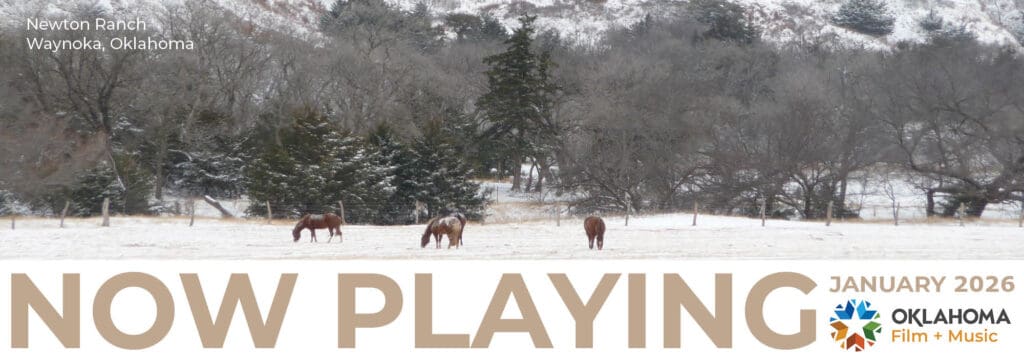Start your new career in the Oklahoma music industry!
Welcome to Oklahoma’s music community, where there is a place for you! Home to some of the most renowned musical acts and venues in the world, there are more exciting opportunities in Oklahoma’s music industry than ever before. As the entertainment industry continues to flourish both globally and here in Oklahoma, the need for the continued development and expansion of our local music industry workforce and companies is critical. We invite you to explore our website’s resources to learn more about ways you can plug in to the industry and start your careers now!

Connect with Us!
Keep up with the latest in Oklahoma film and music industry news by subscribing to our e-blasts and monthly newsletters!
For Beginners
Below you’ll find some beginning tips to consider for those who have never worked in the music industry, but are looking to move forward. The great thing about the music industry is there are positions for nearly every skill set, either on stage, on the road, or in an office.
Opportunity Abounds for Every Occupation: It’s very common to associate music industry jobs with what is seen most on-stage: performers, musicians, celebrities, etc. However, so much of what goes into bringing music to the stage happens behind the scenes. Nearly every trade imaginable has a role that easily translates to a position that is part of the music industry. Such occupations and departments include music publisher, concert promoter, music supervisor, audio video engineer, music teacher, dj, production crew, musical therapist, film & video game composer, instrument repair & restoration specialist, and so much more. There’s a place for you in the music industry if you’re ready to jump into the action.
Don’t Forget About Promotion: Yes, there is the actual writing and recording of the music, but what happens after the project is wrapped? The album enters a completely different, but critical, phase of the creative process. If you’re a software or technical expert, this may be a place for you as there are so many skills needed in this realm to complete, distribute and promote an album. Mastering, editing, registering works, promoting and securing placements, are just a few other essential areas.
Learn Your Trade: If you know which area of the music industry interests you most, learn more about it. There are a number of organizations around the state that offer annual educational panels and workshops, some for free, and even more learning opportunities exist in the virtual realm from specialty music blogs, online tutorials, master class videos and more. Endless books abound on music education as well, which may be purchased in your physical or online retailer or procured from your local library systems.
Meet Other Music Professionals / Network: Across the country in all markets, the music industry remains a business where professionals working in the field are closely connected with one another. With this in mind, try to attend as many music events as you can in an effort to meet people, some of whom are those who will be hiring for the next shows and productions in your area. So many jobs are hired based on industry word of mouth and/or proven experience, so whether you’re just starting to meet people or you’re working in a music industry environment, build a good reputation.
Make Stuff: The easiest way to learn is by doing, and in some cases, create your own opportunities. If you want to record that EP or manage that artist, get out there and do it! No matter the scale or size of your project, a simple step forward is gained knowledge and experience.
Work on Other People’s Projects: Apply to participate as a studio intern for a local recording studio, promoter, venue, etc. Volunteer at local festivals. The more you can observe or participate in music projects (creation, promotion, collaboration, distribution), the more you build up your contacts/relationships and learn about the music industry.
Building Your Team: The more you connect with people and make or participate in projects, the more likely you are to start building your team. Collaborating with like-minded people will only help you as you move forward in your career working on your own projects or others.
Pivotal Work
Early Access Free Video Series
The Oklahoma Film + Music Office invites audiences to virtually preview our Oklahoma Film and Music Conference with the release of the “Pivotal Work: Early Access Series”. Join some of the state’s leading industry professionals for this free video series, which features workshops and discussions designed to educate and inspire audiences seeking to learn more about career opportunities within Oklahoma’s film and music industries.
Music Directory
Oklahoma has long been known nationally and internationally for its legendary musical talent and our historic venues, vetted recording studios and talented music business professionals in all corners of the state make Oklahoma the perfect place to create your next music project. Whether you’re a musician looking for new opportunities, a venue looking for quality Oklahoma talent, need a music teacher or looking for a place to record your next album, you can search or join Oklahoma’s official roster of talented musicians and music businesses in the Oklahoma Music Directory.


